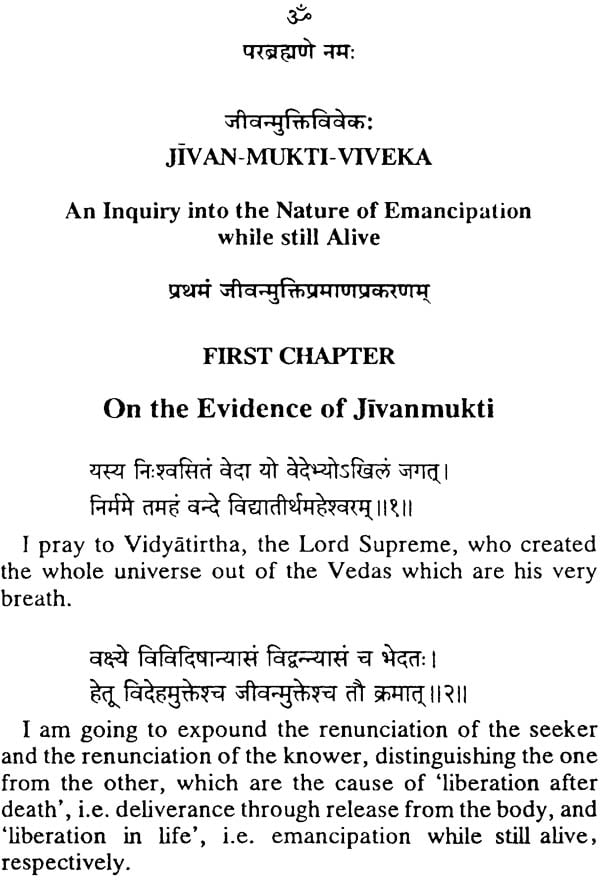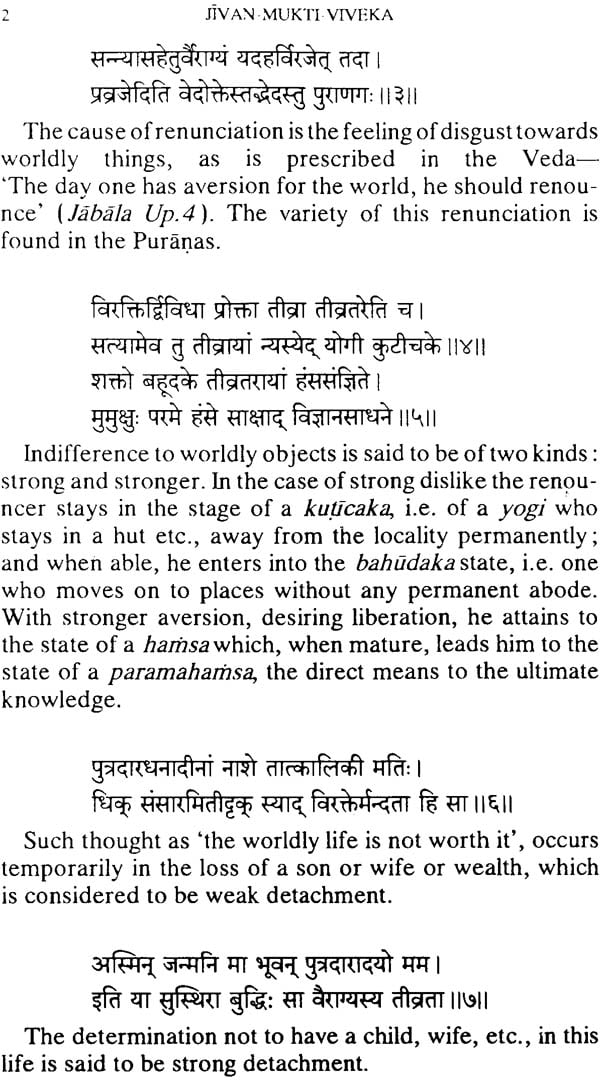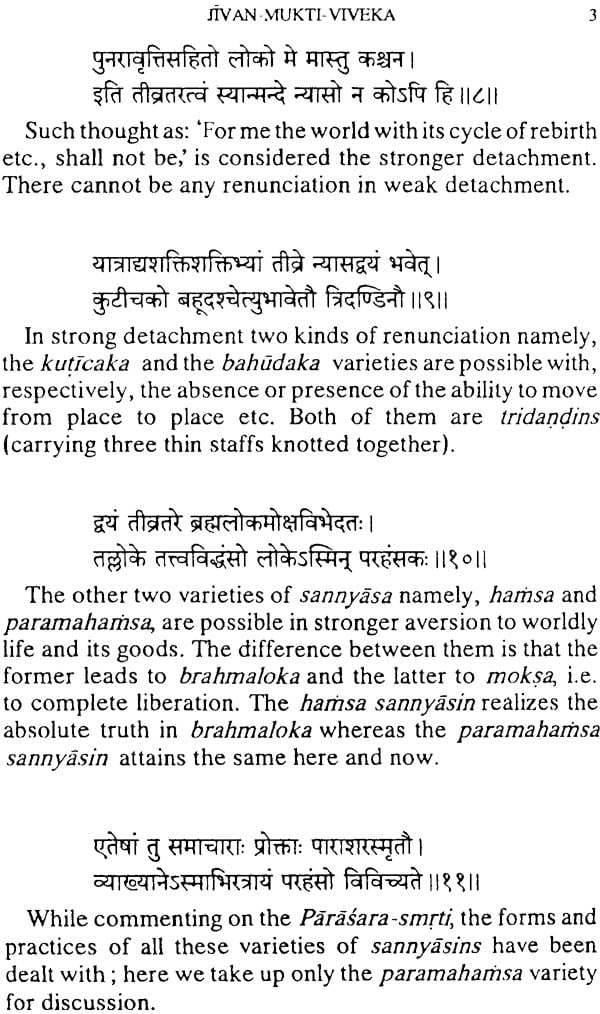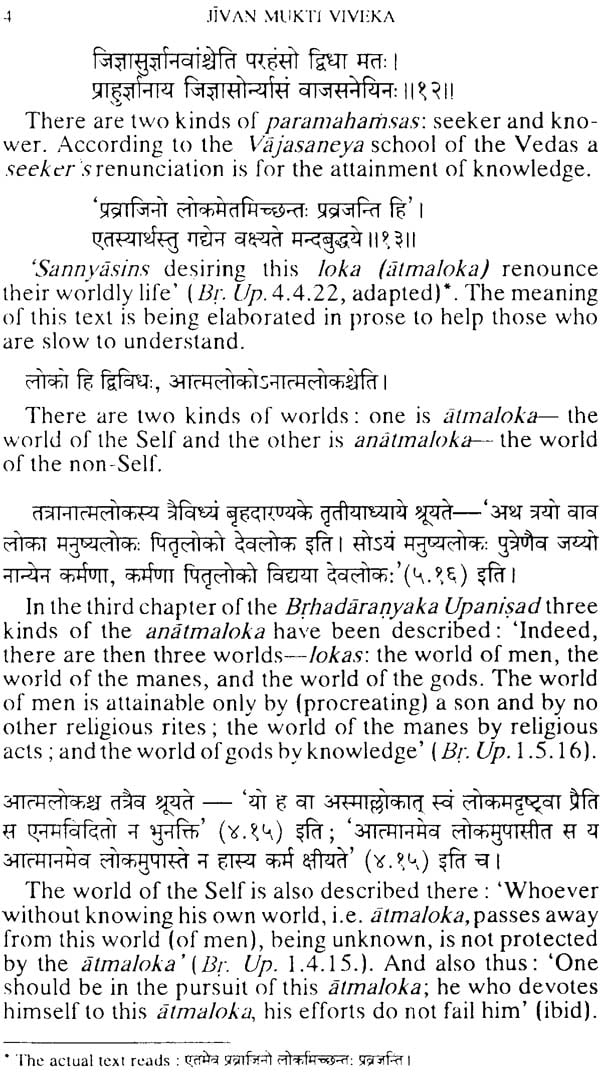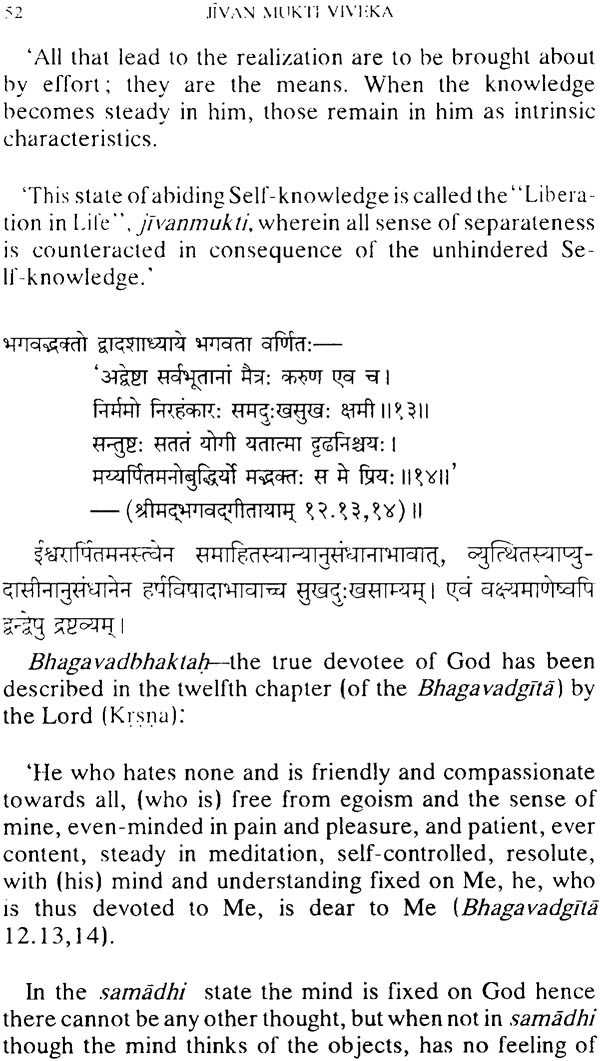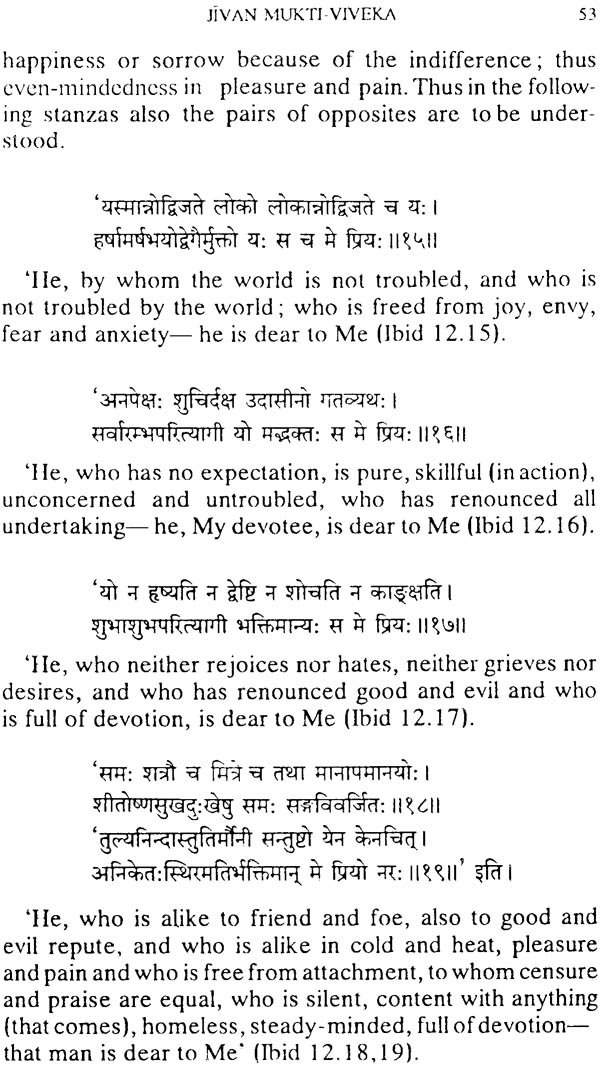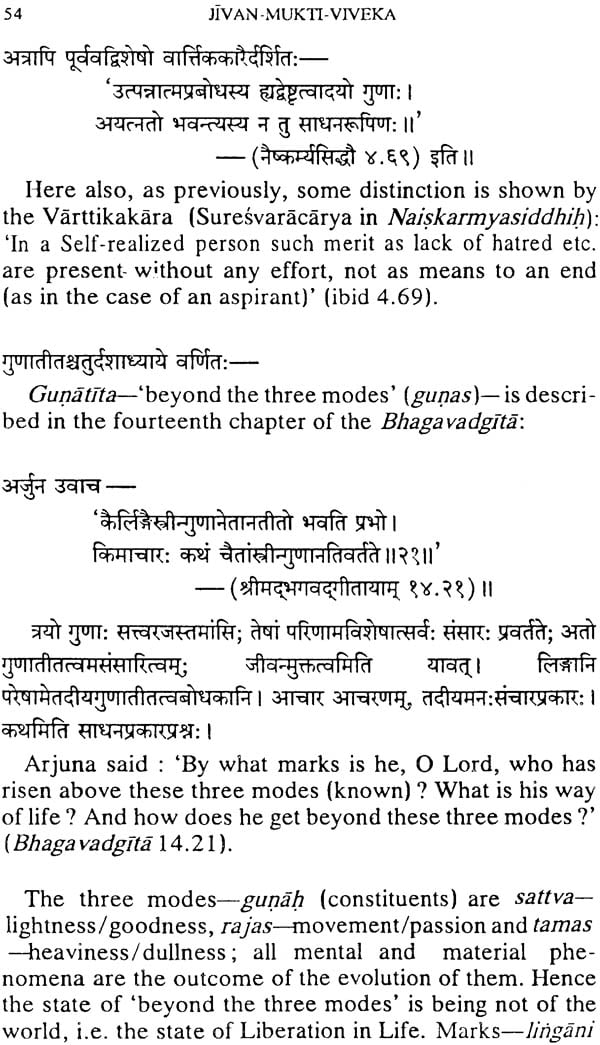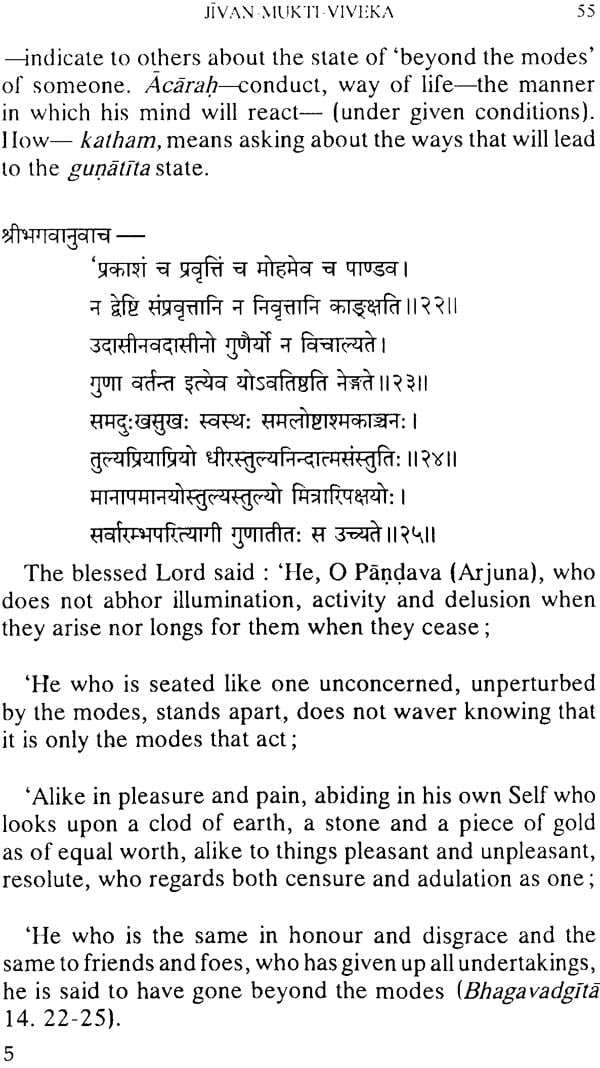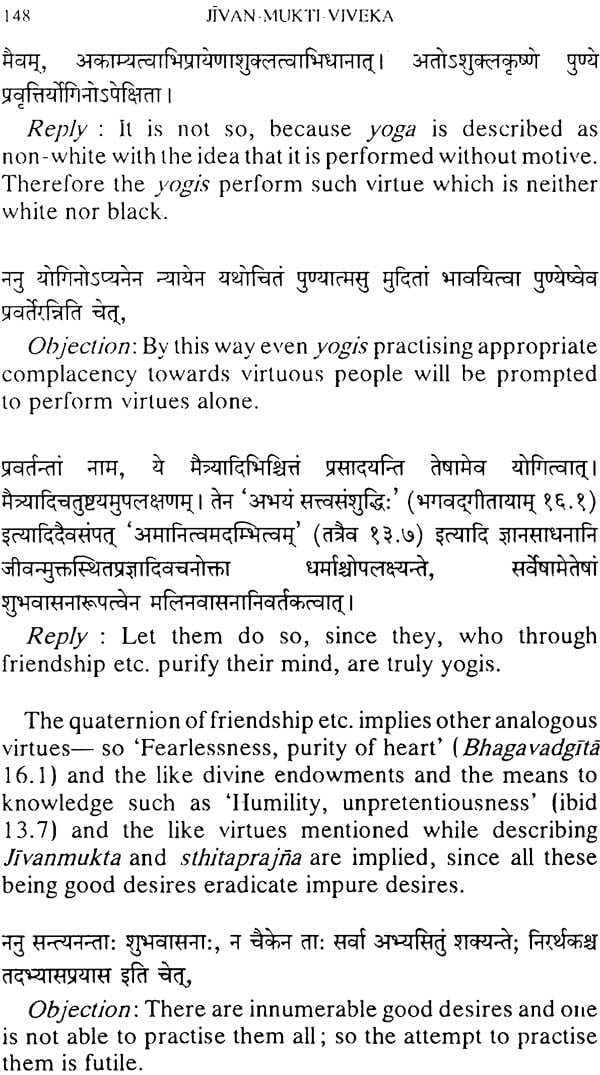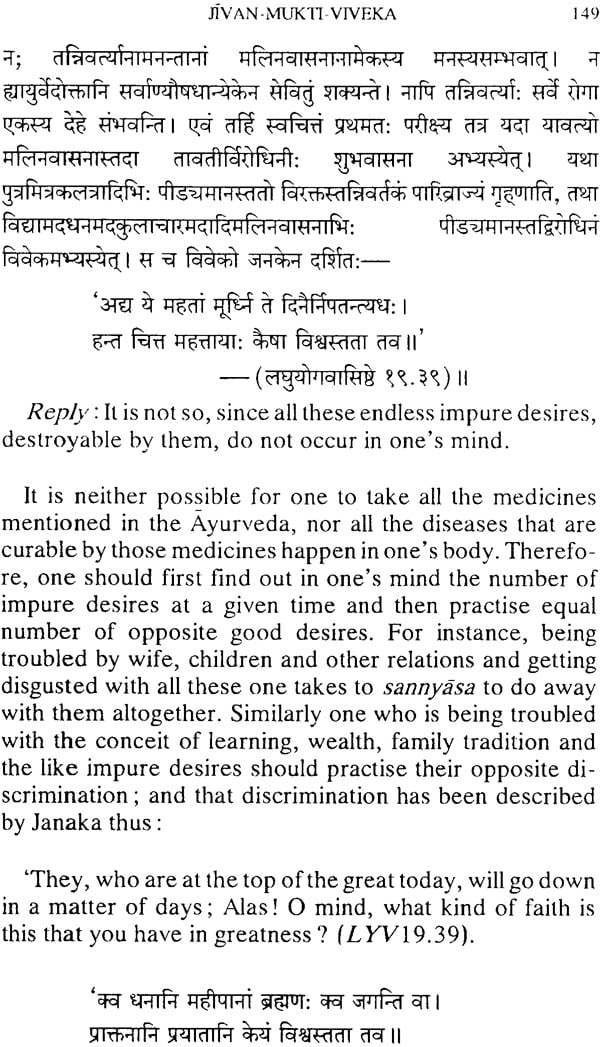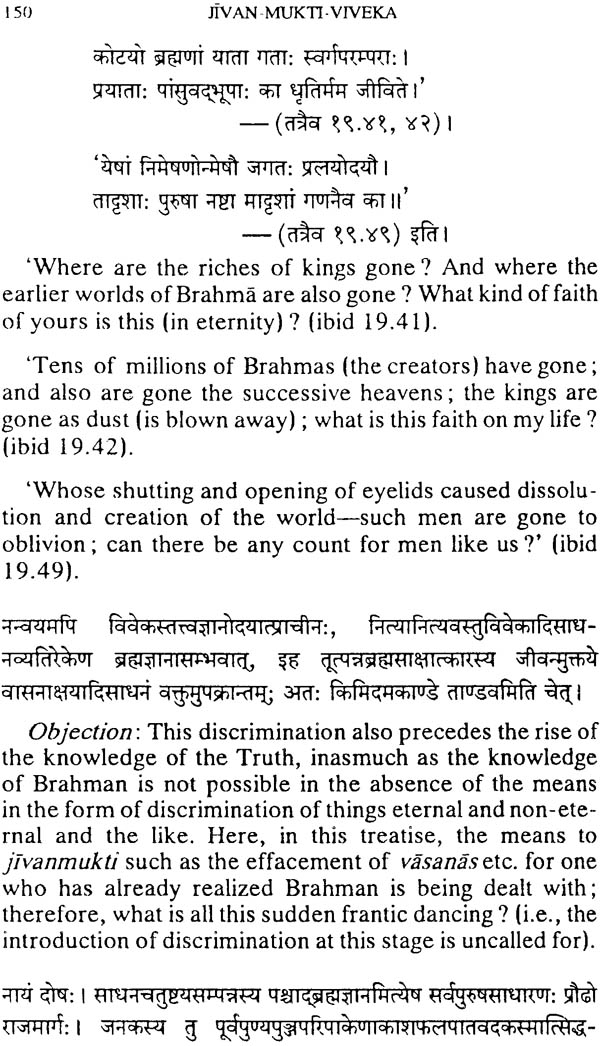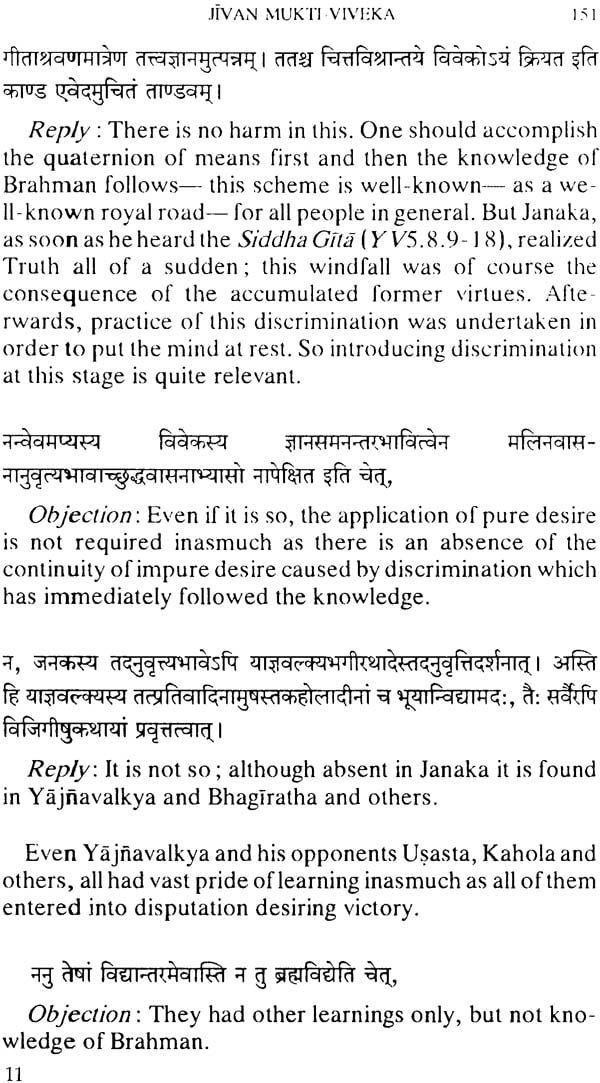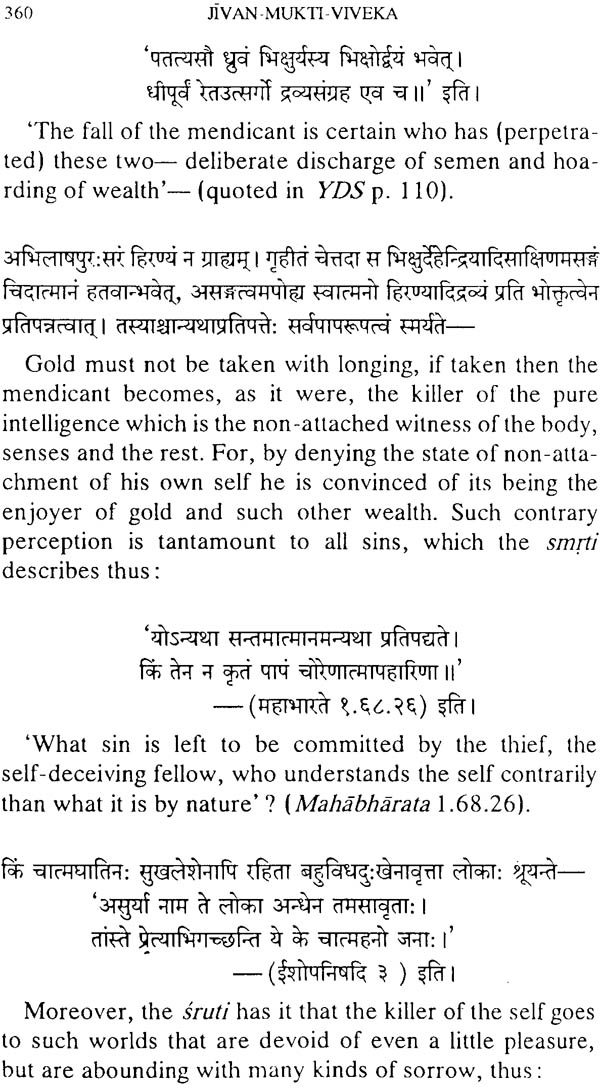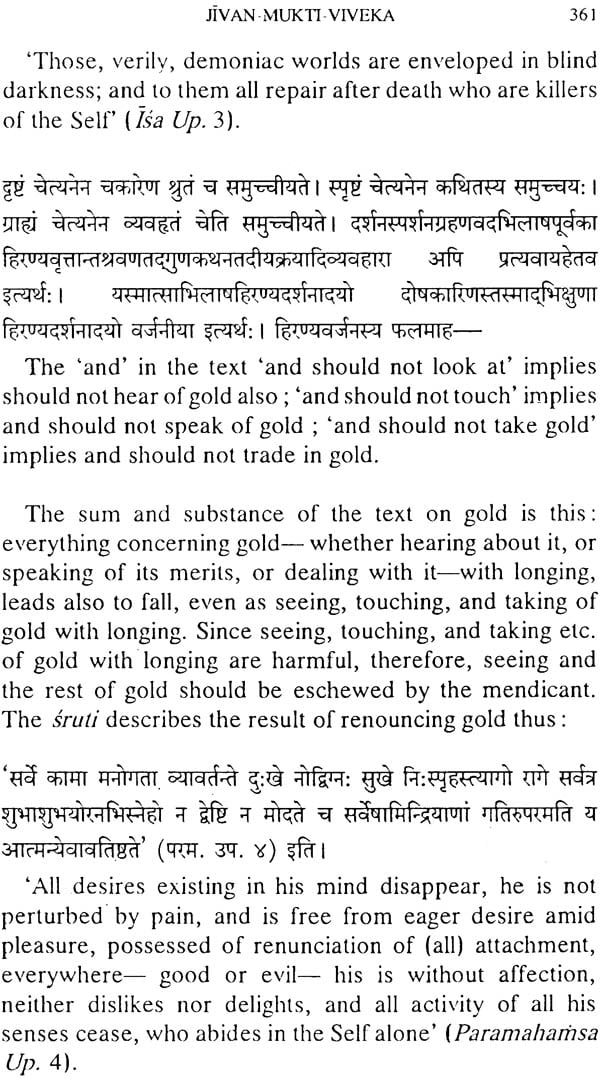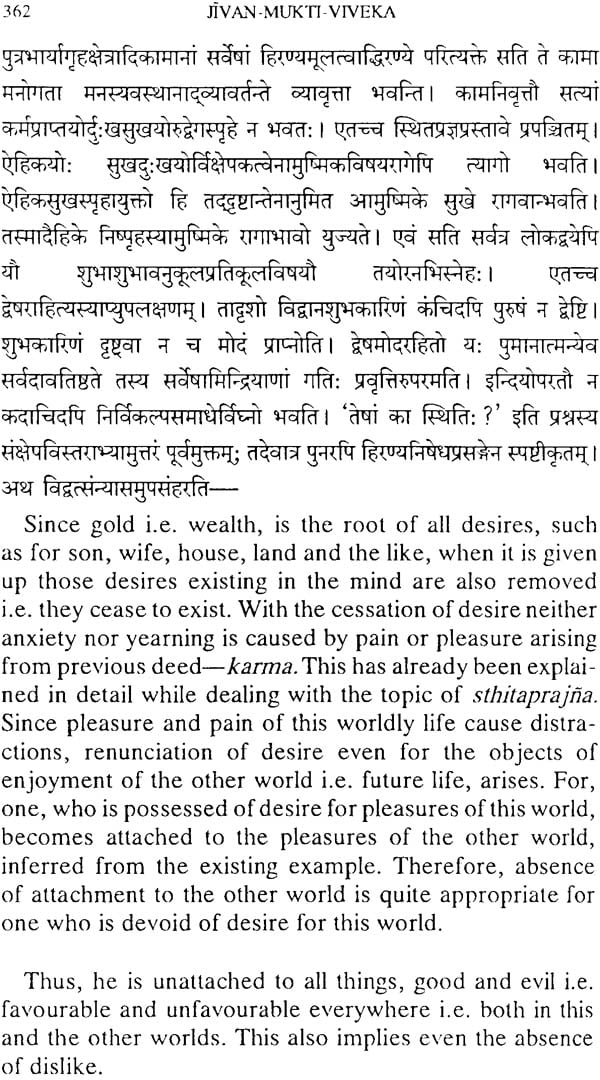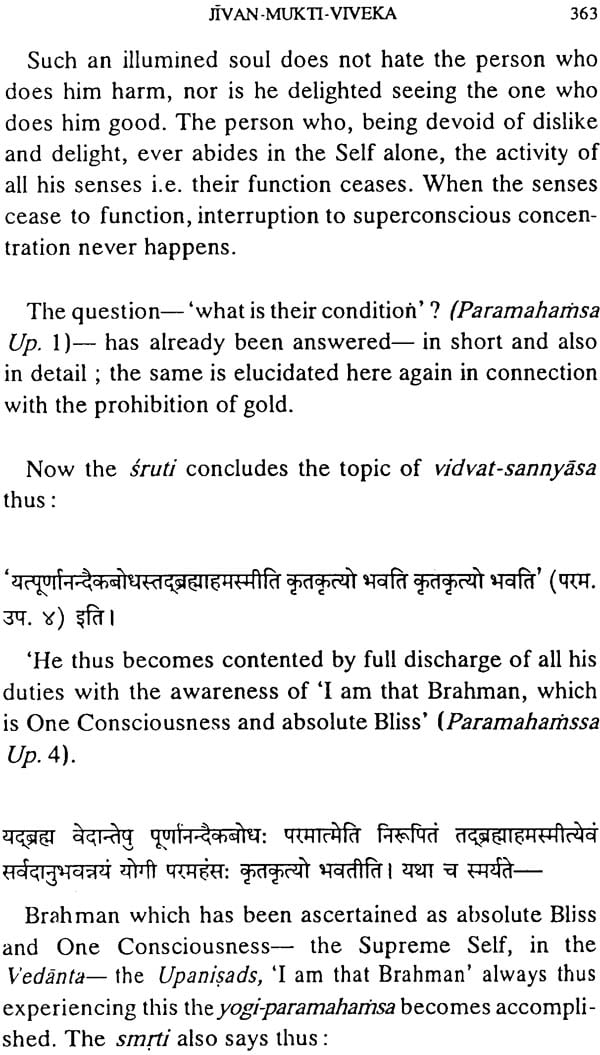
Jivan Mukti Viveka
Book Specification
| Item Code: | IDG968 |
| Author: | Swami Vidyaranya |
| Publisher: | Advaita Ashrama |
| Language: | (Sanskrit Text with English Translation) |
| Edition: | 2019 |
| ISBN: | 9788175051829 |
| Pages: | 389 |
| Cover: | Hardcover |
| Other Details | 8.5" X 5.5" |
| Weight | 470 gm |
Book Description
Translator: Swami Moksadanananda
From the Back of the Book
How does a jivanmukta, a liberated soul, act? How does he move? How does he live?
The seers of the Upanishads declare that a jivanmukta is free desire. But can an ordinary person understand such a person-his life, his behaviour? Can a person who is dreaming understand the experience of one who is awake?
A jivanmukta is no longer tormented by fear: For what is their to fear? It is from a second entity that fear comes.
A jivanmukta is free from the illusion of individuality and therefore from the experience of pain. He who knows the Atman overcomes grief.
A jivanmukta is free from the binding effects of past actions. 'All works cease to bear fruit.'
A liberated soul is not given to inactivity, which is a characteristic of one steeped in tamas. He sees action in inaction and inaction in action.
An illumined soul has attained the blessed state of being free from doubt. All doubts are resolved.
A jivanmukta is no longer concerned about bondage or liberation, for in reality these do not belong to the atman, the ever-free Self.
Swami Vidyaranya-the fourteenth century statesman, savant, and saint-was known as Madhavacarya before taking sannyasa, He played a very important role in the founding of Vijayanagara Empire; and was adviser-in spiritual as well as temporal affairs-to the first three kings of Vijayanagara, namely, Harihara I (crowned A.D. 1336), Bukka I, and Harihara II.
A prolific writer with encyclopaedic knowledge, Vidyaranya has to his credit many important works on various subjects-ranging from Astronomy to Vedanta. At a ripe age he wrote Pahcadasi and Jivanmukti- Viveka-two excellent works for the advanced students of Vedanta and seekers of Jivanmukti.
Jivanmukti, the subject-matter of the present treatise, is a problem of Indian Philosophy. The Vedanta proper, which is based entirely upon the teachings of the Upanisads, the Brahmasutras, and the Bhagavad-Gita, and which is other- wise calledAdvaita- Vedanta philosophy, advocates Jivanmukti or freedom in life.
The Jivanmukti- Viveka deals with its subject systemati- cally as well as traditionally. There are five Prakaranas-chap- ters. In the first chapter, after describing the two kinds of Sannyasa, namely Vividisa-Sannyasa and Vidvat-Sannyasa, the nature, scope and scriptural evidence of Jivanmukti are pre- sented along with the characteristics of a Jivanmukta.
The second and third chapters deal with the means to Jivanmukti and Videhamukti, namely Tattva-Jnana-the knowledge of Reality; Vasana-ksaya-the effacement of latent desires; and Manonasa-the dissolution of mind.
The fourth chapter deals with the purposes of Jivanrnukti, namely, Jnana-raksa-the preservation of knowledge; Tapas- penance (i.e., sapta yoga-bhumis-the seven successive stages of yoga); Visamvadabhava-absence of controversy, either in the form of dispute or censure; Duhkha-nasa-cessation of pain; and Sukhavirbbava-manifestation of bliss. The fifth chapter deals at length with Vidvat-Sannyasa-renunciation of the knower which is helpful to Jivanmukti.
Although formal Sannyasa-both Vividisa- and Vidvat- Sannyasas-has been emphasized ancouraged, the knowl- edge of Reality-Brahma-Jnana, can be acquired by anyone in any Asrama-stage of life, viz., Brahmacarya, Garhasthya, or Vanaprastha, by renouncing mentally while performing one's peculiar Asrama-duties. But to all knowers of Reality Vidvat- Sannyasa is advised for unimpeded joy of Jivanmukti.
Vidyaranya defends his points by cogent arguments, and also supports them by quoting passages from the Upanisads, Bhagavad-Gita, Yoga- Vasistha, Bhagavata, Mahabharata, Puranas, Smrtis, and Dharma-Sastras.
Effort has been made to make the present translation faith- ful as well as plain and easy. We take this opportunity to express our grateful thanks to the authorities and staff of Advaita Ashrama for their patience and for taking so much trouble to publish this work. Our obligations to the existing English trans- lations of scriptural texts are many. Therefore we refrain from acknowledging them individually.
| Preface | vii | |
| Chapter 1 | On the Evidence of Jivanmukti | 1 |
| Chapter 2 | On the Effacement of the Latent Impressions | 75 |
| Chapter 3 | On the Dissolution of the Mind | 181 |
| Chapter 4 | The Purpose that the Accomplishment of Jivanmukti Serves | 276 |
| Chapter 5 | An Enquiry into the Renunciation of the Knower | 315 |
| Index to Quotations | 365 | |
| Index | 385 |
